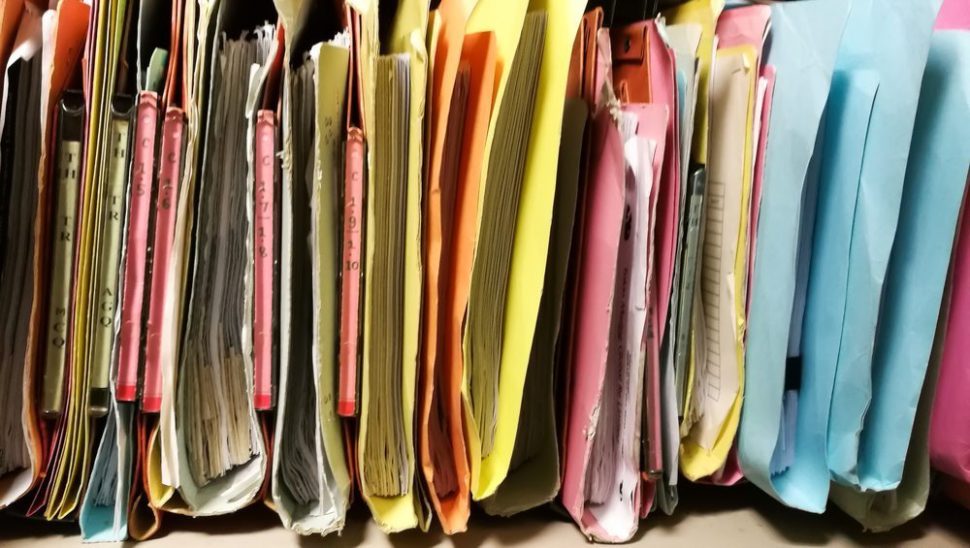Internet security isn’t a complete joke, but in many cases it is laughable. Your best bet as an Internet user is to keep all personal information offline or on analog platforms. 2017 is the year that we learn what to put online, and what to keep offline.
We’re so busy remembering passwords and scheduling automatic payments that we’ve forgotten how vulnerable the Internet is. This is not to say that cybersecurity doesn’t exist, but the web is growing too rapidly for absolute security to keep up.
#EdgyLabs thinks the best #cybersecurity is being Internet aware.Click To Tweet2016 taught us many things, and one nugget of wisdom that should be chief among them is that we need to rethink how we use the Internet on a personal level. If you aren’t careful and informed about your computer security, then you are a cybercrime statistic waiting to happen. No fancy program or service is going to keep you completely safe.
Good Cybersecurity Habits:
- Never re-use a password.
- Change your passwords, but not on a predictable basis.
- Don’t use predictable passwords like ‘password.’
- Be careful what you click on when you open an e-mail.
- Never respond to requests for your password or requests to change your password unless you solicited the request.
- Never download something from an unknown or disreputable source.
You would think that these tips are obvious, but sometimes the best advice is the hardest to take seriously. We can thank 2016 for giving us some high-profile examples of insufficient cybersecurity.
Previous Hacks to Consider
I want to talk about the 2016 election cycle. Not about the election itself, but rather let’s confine our talk to the hacking of DNC chairman John Podesta. One would assume that a major political party in the U.S. would have decent cybersecurity, and let’s just assume that they did because it would have made no difference. The hack didn’t happen with some brute-force crashing of Podesta’s firewall; it happened because someone clicked on a link in an e-mail that prompted them to change a password. It’s a technique called phishing, and it is almost as old as the web itself.
The DNC isn’t alone, however. Other high profile databases have been hacked in recent years through more sinister, technical methods, such as those owned by Google or Yahoo, or more famously, Ashley Madison.
Our information is out there, and for most of us, it is vulnerable in ways that we don’t even understand. There is little pity for the people that were caught in the Ashley Madison hacking scandal, but we should learn a real lesson from them whether we pity them or not. If they had been more careful of what information was on the Internet, if they hadn’t been so cavalier with putting their potentially illicit activities online, then maybe they would not have been so publically shamed.
There is no stopping the way the Internet is creeping into every corner of our lives, and we must adapt to this new reality rather than fight against it if we are going to live comfortably through Industry 4.0. Education should play a larger role than cybersecurity, and that means knowing when to put information online.
How to go Analog in 2017
We don’t have to put every single part of our lives on the Internet just because we can. Let me explain what I mean with this purely anecdotal story:
Every day I open up my Facebook feed, and I scroll through, looking at pictures of cute animals and trying to avoid politics that I do not care about. Eventually, and without fail, there is a friend who is posting their personal drama for the entire world to see. Maybe their spouse is putting up a mean fight over something inconsequential, or maybe they are sick of some unnamed hater whose actions are entirely unacceptable. Either way, I read the post and the comments for my daily dose of guilty pleasure, and I feel a little bit better about myself because even if I were going through the same thing, I know that I wouldn’t be posting it on the Internet for everyone to see.
If your friend had a loud and inappropriate argument in the middle of the grocery store, their shame would be limited to the people who witnessed it and whoever they talked to. When they do it online, it is there for everyone in the world, and it will never go away.
You need to be acutely aware of your online footprint. If you want to be secure, then you need to have as little of a footprint as possible. If you have critical information, record it offline and keep it there. If you have a notepad where you keep all of your passwords, convert it to print and delete it. Even President Trump recommends using a courier rather than sending emails.
In many cases, hacking attempts involve the use of a Trojan virus that can take direct control of the files on your computer when loaded into your system, and if that notepad can unlock the gates of your identity and bank account, you are in for some serious loss.
You want to keep relevant documents offline as well, or at least maintain the keys to them stored offline somewhere. If you want to lean on cookies to quickly log into entertainment sites such as forums and social media, that’s fine, but use different passwords for more sensitive accounts such as your banks and utilities, and make sure that your computer does not remember those passwords.
Personally, I use a Rolodex for that information. Any important passwords are alphabetized by the host site that they access, and I regularly go through the old ones to throw them out or change them.
Furthermore, you need to start treating your email like you treat physical delivery services. If you got an unmarked package with a slight white residue around its poorly duct-taped corners, you wouldn’t want to open it, and you should treat emails from an unknown source the same way.
In general, treat the Internet with a no-trust policy. It might just keep your information safe.



















Comments (0)
Most Recent